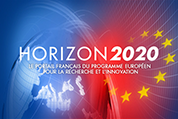ESR2.3: Alyssa CRIPPENReal-time waves-based interrogation to predict real-future fracturing of materials under stress
Alyssa CRIPPEN received her bachelor's degree in Geophysics and Planetary Sciences from Boston University. For her undergraduate senior thesis, she created a short-period surface-wave tomography model of the Alborz mountain range in Iran via the ambient noise method. Alyssa is now a PhD candidate at the University of Edinburgh working on her project titled "Real-time wave-based forecasting of fracturing in stressed Earth materials" with her advisors Dr. Andy Bell, Dr. Andrew Curtis, and Dr. Ian Main. She will be working in the Real-Future Prediction and Control (RFPC) laboratory at the University of Edinburgh. Using a rock physics/material failure laboratory, she will work to create a statistically significant dataset of bulk medium properties in order to create models for material failure prediction. These models will ultimately be applied to real-time data for event prediction.
Main host institution:
School of Geosciences, University of Edinburgh (Edinburgh, Scotland, UK)
Supervisor:
Andrew Curtis (Andrew.Curtis @ ed.ac.uk)
Secondment institution:
Objectives:
Wave-based monitoring data has been used in a number of contexts to detect the onset of earthquakes, landslides, eruptions. However, all of these results have been obtained in retrospect, i.e. given knowledge that the event occurred. This retrospective bias implies that only false-negatives can be identified; false-positives will never be found as they are never sought. To rectify this fundamental bias, models must be tested with no human interference, on events that may or may not occur in the real future.
The RFPC laboratory being built at UEDIN will consist of
- an on-line repository for models of event prediction to be tested on real-future prediction,
- a laboratory in which catastrophic events may or may not be generated through applied stress on material samples (solids, e.g. rocks), and from which real-time wave-based data interrogating the material’s state stream out, and
- a computational facility (terracorrelator) which analyses the streamed data in real-time, continually uses the reposited models to make real-future predictions, and tests the predictions against real-future reality as it emerges. Models can be discriminated on their true performance without retrospective bias, and different forms of wave- based interrogation methods can be tested for their true predictive capacity.
The ESR will develop methods for real-time empirical Green's function-based fracture detection, coda-wave interferometry (CWI) and other interferometric approaches at the extremely high data streaming rates pertinent to the RFPC. He or she will then test and develop models that predict bulk medium properties and fracturing events, and their development over time. Successful models will be tested on real-future data continually streaming from around the world, to predict future fracturing events in the real Earth.
Expected results:
- Adapt the RFPC repository to handle and deploy models based on information from CWI and other interferometric techniques (currently only micro-fracture events are included). Adapt or create new models to predict real-future properties of material from such data.
- Deploy all models in the RFPC laboratory, creating an unbiased calibration of the success of each.
- Deploy successful models on an appropriate subset of seismological field data from around the world, streaming into the terracorrelator in real-time. Thus use the same RFPC system to test models on real-future events in the real Earth.
further information:
Also in the section
Key Facts
- Coordinated by Université Pierre et Marie Curie
- 15 participating partners
- 6 European countries and the USA
- 15 trained fellows
- Project budget: 3 227 952.96€
- Project duration: 4 years
- WAVES is a European project funded by the European Union’s Horizon 2020 research and innovation programme under the Marie Slodowska-Curie grant agreement n° 641943.
Contact
Coordinator:
Lapo Boschi (lapo.boschi @ upmc.fr)
Project Manager
Fanny Schultz (fanny.schultz @ sorbonne-universite.fr)



